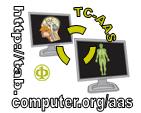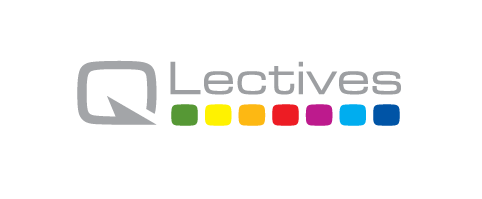Important Dates
The exact deadlines are at 11:59pm Hawaii time (HST).
Due to numerous requests we are extending the deadline of abstract and full paper submission.
These deadlines are strict and no more extensions will be granted.
| Abstract submission: | April 19, 2010 May 3, 2010 |
| Paper submission: | April 26, 2010 May 10, 2010 |
| Notification: | June 28, 2010 |
| Camera ready version of accepted papers: | July 19, 2010 July 27, 2010 |
| Early registration deadline: | August 13, 2010 |
Call for Papers
The aim of the SASO conference series is to provide a forum for the foundations of a principled approach to engineering systems, networks and services based on self-adaptation and self-organization. To this end, the meeting aims to attract participants with different backgrounds, to foster cross-pollination between research fields, and to expose and discuss innovative theories, frameworks, methodologies, tools, and applications. The complexity of current and emerging computing systems has led the software engineering, distributed systems and management communities to look for inspiration in diverse fields (e.g., complex systems, control theory, artificial intelligence, sociology, and biology) to find new ways of designing and managing networks, systems and services. In this endeavor, self-organization and self-adaptation have emerged as two promising interrelated facets of a paradigm shift.
The fourth edition of the SASO conference encourages submissions in both traditional themes of self-adaptivity and self-organization, as well as in emerging areas. Some of these new areas include (but are not limited to) Internet-enabled applications, cloud computing, social-networking, and the Internet of Things. These are enabling radically new and innovative services that will play an increasingly important role in society, business, and our day to day lives. The success of both new as well as traditional research areas ultimately depends on robust self-* hardware, software, networking, and services.
Self-adaptive systems work in a top down manner. They evaluate their own global behavior and change it when the evaluation indicates that they are not accomplishing what they were intended to do, or when better functionality or performance is possible. A challenge is often to identify how to change specific behaviors to achieve the desired improvement. Self-organizing systems work bottom up. They are composed of a large number of components that interact locally according to typically simple rules. The global behavior of the system emerges from these local interactions. Here, a challenge is often to predict and control the resulting global behavior.
Contributions must present novel theoretical or experimental results, or practical approaches and experiences in building or deploying real-world systems, applications, tools, frameworks, etc. Contributions contrasting different approaches for engineering a given family of systems, or demonstrating the applicability of a certain approach for different systems are particularly encouraged.
Topics
The topics of interest to SASO include, but are not limited to:
- Applications and experiences with self-* systems
- Design and engineering for self-* systems (self-organization, self-adaptation, self-management, self-monitoring, self-tuning, self-repair, self-configuration, etc.)
- Management and control of self-* systems
- Robustness and dependability of self-* systems
- Control of emergent properties in self-* systems
- Biologically, socially, and physically inspired self-* systems
- Theories, frameworks and methods for self-* systems
Submission Instructions
All submissions should be 10 pages and formatted according to the IEEE Computer Society Press proceedings style guide and submitted electronically in pdf format. Please register as authors and submit your papers using the SASO 2010 conference management system. The proceedings will be published by IEEE Computer Society Press, and made available as a part of the IEEE digital library. A separate call for poster submissions will be launched during March 2010.
Review Criteria
Papers should present novel ideas in the topic domains listed above, clearly motivated by problems from current practice or applied research. We expect claims of contribution to be clearly stated and substantiated by formal analysis, experimental evaluations, comparative studies, and so on. Appropriate reference must be made to related work.
Authors are also encouraged to submit application papers. Application papers are expected to provide an indication of the real world relevance of the problem that is solved, including a description of the deployment domain, and some form of evaluation of performance, usability, or superiority to alternative approaches. If the application is still early work in progress, then the authors are expected to provide strong arguments as to why the proposed approach will work in the chosen domain.








